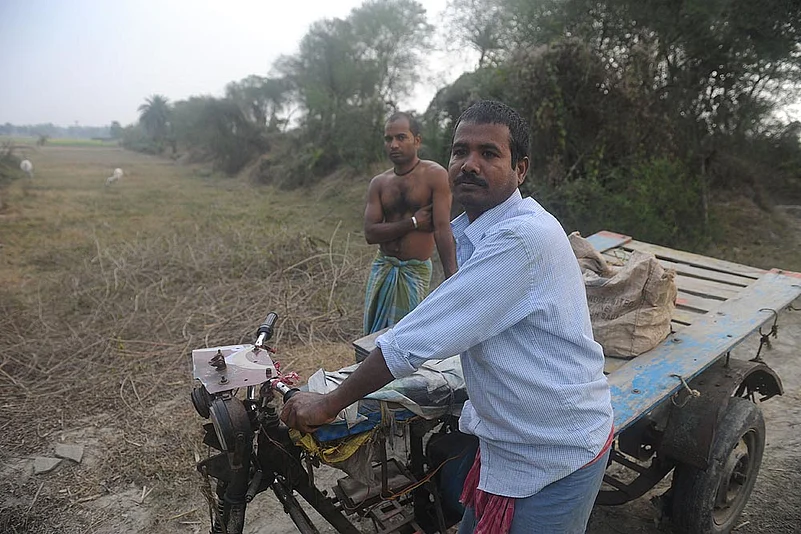Boiled rice and fish curry for lunch. Dal-roti for dinner. Eggs fried in mustard oil at tea time. Country chicken cooked in chilli for the main Sunday meal. This is more or less a consistent menu in the Sardar household, a farm family of Majarhat village in the South 24 Parganas district.
“God has been kind to us and given us plenty of food,” says 40-year-old Sambhu Charan Sardar, head of the family. And yet, astoundingly, he claims he has had to shelve his plans for buying a refrigerator this year because of lack of funds. “The flood eight months ago washed out the paddy crop which is our main source of income. So we don’t have money. Where are we going to get 10,000 rupees?”
This is the irony currently playing out in the rural areas of West Bengal. Or at least in villages which are traditionally considered more “prosperous”—the ones referred to as the “rice bowls” of Bengal because they account for over 75 per cent of the state’s paddy production. The families here are self-sufficient enough to grow most of the essentials, but don’t have purchasing power. “We don’t need to buy rice, potatoes, different vegetables, wheat or even mustard oil because we produce everything,” says Sardar.
The mood in these villages therefore is not unhappy because there is enough food but everyone agrees there is no buying or selling. “Well, we farmers find that selling is becoming a loss-making enterprise for us. We are not recovering the production cost, forget making a profit,” says Subrata Sardar, another farmer in Majarhat. It’s a recent phenomenon, though, he points out.
Even the small towns in the locality are complaining of “a decline in business in general”. A couple of kilometres from Majarhat and off the main highway is Kulari, a semi-urban area which houses a cluster of stores. “Earlier you would not find so many shops shut at this time of day,” says Santanu Das, 54, who at 1 pm has just downed the shutters of the jewellery shop he runs. “This is very close to the central intersection between the two wholesale markets of Canning and Gholar Bazaar,” he says. “So earlier it was always busy and you rarely had people go home for lunch. Now it’s a different story.”
Not everyone is downcast, even in the Sardar household. “We already have a TV,” says his wife Archana. “The fridge, we don’t really need because we don’t store food. We eat fresh produce from the fields. It is more a status symbol. But you won’t find us scrimping on essentials like school books for our children or medicines.” Perhaps this is the crux of rural sentiment in West Bengal right now. They will buy essentials, the luxuries can wait. Never mind that one person’s luxury is another’s necessity.
By Dola Mitra in South 24 Parganas District


























